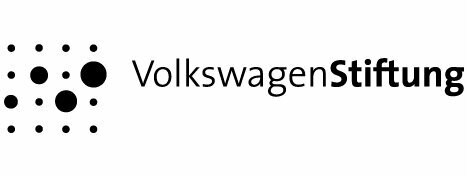The Lower Saxony research cluster FuturMig brings together a number of institutions to address the question of how a society shaped by migration could look in future. The Leibniz Institute for Educational Media | Georg Eckert Institute is working alongside the Institute for Migrations Research and Intercultural Studies (IMIS) at Osnabrück University (coordinators), the Centre for Global Migration Studies (CeMig) at the University of Göttingen, the Center for Diversity, Democracy and Inclusion in Education at the University of Hildesheim and the Friedland Museum.
The aim of the project is to analyse strategies and develop ideas for how to address migration in future in political, social, media and economic contexts. This includes
- An academic review of current debates and practices
- The establishment of an international guest professorship
- The conception of a research network
The project focusses particularly on education and training contexts, such as in primary and secondary schools, universities and colleges, museums, memorial sites and civic initiatives. As part of the project, a cross-university certification programme is being developed that prepares students, trainee teachers, teachers and specialists to approach and reflect upon migration-related diversity as a social norm.
In addition, a real-world laboratory will be created in which participative formats and social interventions can be tested and discussed with civic groups
FuturMig cooperates with the Collaborative Research Centre 'Production of Migration' and is supported by the Lower Saxony Ministry for Science and Culture and the Volkswagen Foundation within the framework of the ‘research clusters’ (Wissenschaftsräume) programme.
-
Aims
School as an institution and educational media can both be understood as having the role of imparting knowledge, competences, social norms and values to future generations. The project therefore aims to analyse how current and future migration are addressed and depicted in curricula and educational media for schools and to develop sample educational media. The project team will also advise those involved in writing and designing curricula and educational media for schools on migration, participation, racism critique and diversity sensitivity from the perspective of reflective migration research.
-
Methodology
The analysis of the curricula and textbooks will focus on how the future of migration is depicted and the projection of future scenarios of migration and will also address future topics of a society shaped by migration. It also explores alternative perspectives of the participatory transformational design of migration in contrast to the omnipresent governmental discourse of an effective ‘management of migration’.
Alternative educational media, based on the research findings, will subsequently be developed and published on the online platform Zwischentone - Materialien für Vielfalt im Klassenzimmer. Recommendations for core curricula and general guidelines for schools will also be drawn up and consultations arranged with those involved in the production of educational media on migration, participation racism critique and diversity sensitivity, which communicate the perspective of reflective migration research.
-
Results
To include:
- Academic publications
- Textbook study on migration
- Modules for the online plattform Zwischentone - Materialien für Vielfalt im Klassenzimmer

